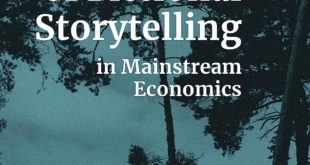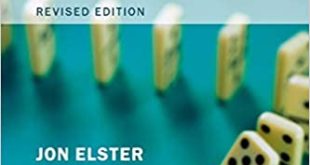The 25 Best Econometrics Blogs and Websites Yours truly, of course, feels truly honoured to find himself on the list of the world’s 25 Best Econometrics Blogs and Websites. 2. Bruno Rodrigues 8. Eran Raviv Blog Statistics and Econometrics 13. How the (Econometric) Sausage is Made 14. Lars P Syll Pålsson Syll received a Ph.D. in economic history in 1991 and a Ph.D. in economics in 1997, both at Lund University. He became an associate professor in economic...
Read More »‘Testing’ purchasing power parity theory
‘Testing’ purchasing power parity theory Purchasing power parity doctrine is examined by sophisticated statistical and econometric techniques. The time series of aggregated price levels and the nominal exchange rates are treated as a random sample. Most papers of this type deal with the technical properties of the slightly different data sets. To take some examples (at random): “Two potential problems arise when working with nominal exchange rates and...
Read More »On the best sellers list in economics and econometrics
On the best sellers list in economics and econometrics Yours truly’s latest book has made it onto Amazon’s lists of best sellers in economics and econometrics. I am — of course — truly awed, honoured and delighted.
Read More »Non-binary ergodicity (wonkish)
.[embedded content]
Read More »The inherent epistemological limitation of econometric testing
The inherent epistemological limitation of econometric testing To understand the relationship between economic data and economic phenomena, it is helpful first to be clear about what we mean by each of these terms. Following Jim Woodward (1989), we can characterize “phenomena” as features of our experience that we take to be “relatively stable” and “which are potential objects of explanation and prediction by general theory.” The phenomena themselves are in...
Read More »The difference between rate and probability (wonkish)
The difference between rate and probability (wonkish) Suppose there is a series of Bernoulli trials, that each trial has the same probability p of success, and that the trials are independent—like the standard model of coin tossing, treating ‘heads’ as ‘success.’ Then the Law of Large Numbers guarantees that the rate of successes converges (in probability) to the probability of success. If a sequence of trials is random and the chance of success is the same...
Read More »What is this thing called probability?
What is this thing called probability? Fitting a model that has a parameter called ‘probability’ to data does not mean that the estimated value of that parameter estimates the probability of anything in the real world. Just as the map is not the territory, the model is not the phenomenon, and calling something ‘probability’ does not make it a probability, any more than drawing a mountain on a map creates a real mountain … In summary, the word ‘probability’...
Read More »Beware of Monte Carlo simulations
Beware of Monte Carlo simulations In some fields—physics, geophysics, climate science, sensitivity analysis, and uncertainty quantification in particular—there is a popular impression that probabilities can be estimated in a ‘neutral’ or ‘automatic’ way by doing Monte Carlo simulations: just let the computer reveal the distribution … Setting aside other issues in numerical modeling, Monte Carlo simulation is a way to substitute computing for hand...
Read More »How to do econometrics properly
How to do econometrics properly Always, but always, plot your data. Remember that data quality is at least as important as data quantity. Always ask yourself, “Do these results make economic/common sense”? Check whether your “statistically significant” results are also “numerically/economically significant”. Be sure that you know exactly what assumptions are used/needed to obtain the results relating to the properties of any estimator or test that you...
Read More »The limited epistemic value of ‘variation analysis’
While appeal to R squared is a common rhetorical device, it is a very tenuous connection to any plausible explanatory virtues for many reasons. Either it is meant to be merely a measure of predictability in a given data set or it is a measure of causal influence. In either case it does not tell us much about explanatory power. Taken as a measure of predictive power, it is limited in that it predicts variances only. But what we mostly want to predict is levels, about which it...
Read More » Heterodox
Heterodox






